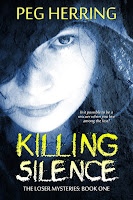Buchbrauchen

Okay, I made that word up, and I never studied German, so don't criticize! There should be a word for wanting something good to read but not being sure what you want or able to find it. Apparently what I want to read isn't very popular right now. I've been sick of serial killers for years, but that's mainly what Amazon offers when you type in mystery . I'm also sick of protagonists who aren't much better than the criminals they seek. I gave up on two books this week. In one the protag shared his client's cocaine with him and spent waaaaaay too much time describing the physical attributes of the sleazy, slimy women the client surrounded himself with. In the other, every cop was corrupt and every lawyer was shady to the point I was sick of all of them. I've never been much for books where the mystery takes second place to something else, like growing kumquats or shopping. I'm disappointed by books where the killer comes totally out of the blue



